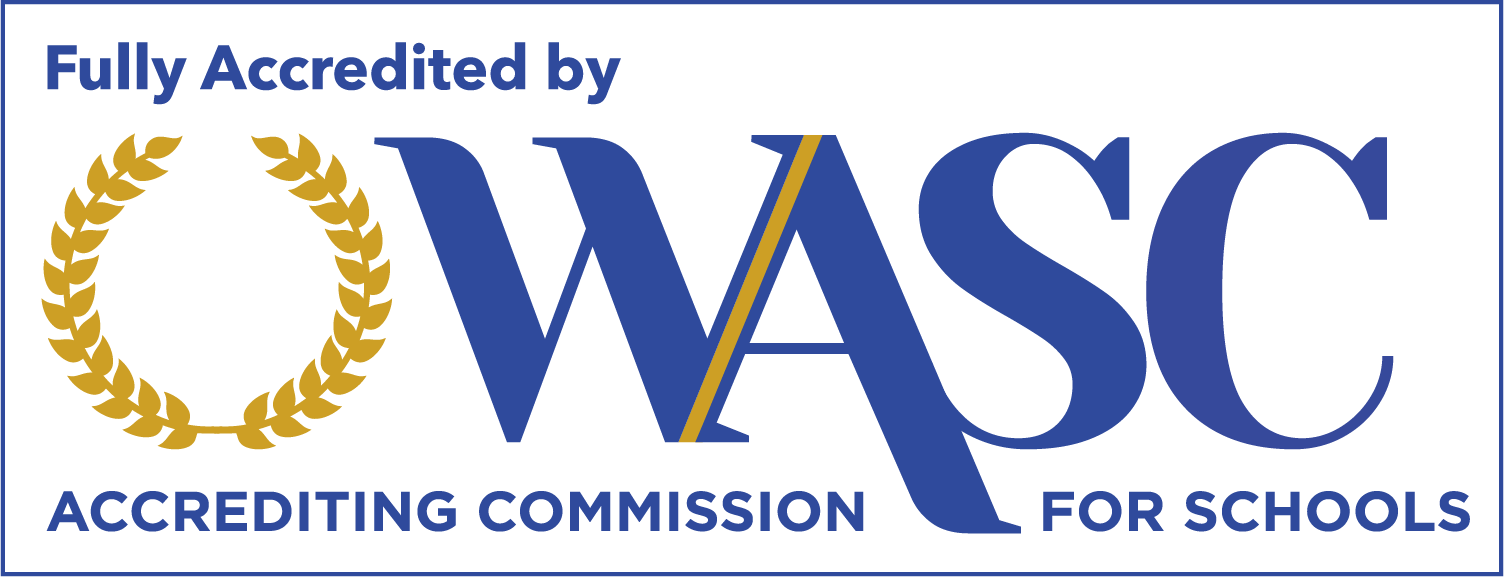Unlocking Support: Essential Resources for Empowering People With Dysgraphia
At READ Academy, we understand the challenges of dysgraphia and are committed to providing essential resources to help individuals with dysgraphia learn.
Our experienced team of educators and specialists creates an empowering environment that fosters growth, confidence, and academic success.
By offering tailored instruction, accommodations, and guidance, we help students with dysgraphia unlock their full potential and thrive in their educational pursuits.
Keep reading to discover the comprehensive support and strategies available at READ Academy to empower individuals with dysgraphia.
Creating an Empowering Learning Environment
At READ Academy, we understand the importance of creating a learning environment that empowers students with dysgraphia to thrive.
Our dedicated team of educators works tirelessly to develop and implement strategies that cater to the unique needs of each individual.
By structuring lesson plans specifically for dysgraphic students, incorporating multisensory teaching methods, and fostering an inclusive classroom atmosphere, we aim to unlock the full potential of every student who walks through our doors.
Let’s explore how these essential resources can make a significant difference in the lives of those with dysgraphia.
Structuring Lesson Plans for Dysgraphic Students
When structuring lesson plans for dysgraphic students at READ Academy, breaking down tasks into smaller, manageable steps is essential. This approach allows students to focus on one aspect of the lesson at a time, reducing overwhelm and increasing their chances of success.
Additionally, incorporating visual aids and assistive technology can make a significant difference in the learning experience for dysgraphic students. Some practical tools include:
- Graphic organizers to help organize thoughts and ideas
- Speech-to-text software for writing assignments
- Specially designed writing tools with grips for improved comfort and control
By tailoring lesson plans to the specific needs of dysgraphic students, READ Academy empowers them to engage with the material and demonstrate their knowledge more effectively. Contact Us to learn more about how our structured lesson plans can help your child excel academically.
Incorporating Multisensory Teaching Methods
At READ Academy, we recognize the power of multisensory teaching methods in engaging and supporting students with dysgraphia. Incorporating visual, auditory, and kinesthetic elements into our lessons creates a dynamic learning experience that caters to various learning styles.
Our multisensory approach includes:
- Using manipulatives and hands-on activities to reinforce concepts
- Incorporating music and rhyme to aid in memory retention
- Employing visual aids such as videos and illustrations to enhance understanding
Engaging multiple senses simultaneously, we help dysgraphic students form stronger neural connections and retain information more effectively.
Contact Us to discover how READ Academy’s multisensory teaching methods can unlock your child’s full potential and foster a love for learning.
Strategies for Enhancing Classroom Inclusivity
At READ Academy, we prioritize creating an inclusive classroom environment that celebrates students’ unique strengths and abilities. By fostering a culture of acceptance and understanding, we ensure that students with dysgraphia feel supported and valued as integral members of our learning community.
To enhance classroom inclusivity, our educators implement strategies such as providing alternative assessment methods, offering individual accommodations, and encouraging open communication between students, teachers, and parents. Working together to create a supportive and inclusive learning environment empowers students with dysgraphia to thrive academically and socially. Contact Us to learn how READ Academy’s commitment to inclusivity can benefit your child.
Understanding Educational Support and Accommodations
With dysgraphia, it is crucial to understand the support and accommodations available to you as you progress through the educational system.
By familiarizing yourself with your rights under educational laws, learning how to request and implement accommodations, and collaborating with specialists to develop personalized support plans, you can unlock the resources necessary to thrive academically.
Let’s dive into these critical areas to ensure you have the tools and knowledge to advocate for your needs and succeed in the classroom.
Understanding Your Rights Under Educational Laws
As a student with dysgraphia, you can receive appropriate accommodations and support under educational laws such as the Individuals with Disabilities Education Act (IDEA) and Section 504 of the Rehabilitation Act. These laws ensure equal access to education and that your needs are met in the classroom.
To exercise your rights, it’s essential to work with your school’s special education team to develop an Individualized Education Program (IEP) or a 504 Plan that outlines the accommodations and support you require. By advocating for your needs and collaborating with educators, you can create a learning environment that empowers you to succeed academically. Contact READ Academy to learn how we can help you get the support you need.
How to Request and Implement Accommodations
Schedule a meeting with your school’s special education team to request accommodations. Come prepared with documentation of your dysgraphia diagnosis and a list of the accommodations you believe would help you succeed in the classroom.
Once your accommodations are approved, work closely with your teachers to ensure they are implemented effectively. This may include:
| Accommodation | Implementation |
|---|---|
| Extended time on assignments | Discuss deadlines with teachers and plan accordingly |
| Use of assistive technology | Familiarize yourself with the tools and incorporate them into your daily routine |
| Modified assignments | Work with teachers to ensure assignments are accessible and align with your abilities |
Remember, accommodations are designed to level the playing field, not give you an unfair advantage. By advocating for your needs and working collaboratively with your teachers, you can create a learning environment that enables you to thrive. Contact Us at READ Academy for guidance on requesting and implementing accommodations tailored to your unique needs.
Working With Specialists for Personalized Support Plans
At READ Academy, we understand the importance of collaborating with specialists to develop personalized support plans for students with dysgraphia. Our team works with occupational therapists, educational psychologists, and other professionals to create targeted strategies that address each student’s unique challenges and strengths.
These personalized support plans may include the following:
- Fine motor skill exercises to improve handwriting and dexterity
- Adaptive writing techniques and tools to reduce fatigue and frustration
- Cognitive strategies to enhance organization, planning, and memory skills
- Emotional support and self-advocacy training to boost confidence and resilience
By working hand-in-hand with specialists, we ensure that our students receive the comprehensive support they need to thrive academically and personally. Contact Us at READ Academy to discover how our collaborative approach to personalized support can empower you or your child to overcome the challenges of dysgraphia and unlock their full potential.
Accessing Professional Guidance and Therapy Options
For those with dysgraphia, seeking professional guidance and therapy options can be a game-changer on the path to success.
By finding the right occupational or speech therapist, exploring online resources for remote consultation services, and incorporating critical therapies and exercises into your daily routine, you can unlock a wealth of support and empower yourself to overcome the obstacles associated with dysgraphia.
Let’s explore these essential resources and discover how they can help you thrive personally and academically.
Finding the Right Occupational or Speech Therapist
Finding the right occupational or speech therapist is a crucial step in accessing the support you need to thrive with dysgraphia. Take the time to research therapists in your area who specialize in working with individuals with learning disabilities, and don’t hesitate to ask for recommendations from your school, doctor, or support network.
When evaluating potential therapists, consider the following factors:
- Experience working with clients with dysgraphia
- Familiarity with assistive technology and adaptive strategies
- Ability to develop personalized treatment plans
- Compatibility with your learning style and personality
Once you have found a therapist who meets your needs, work closely with them to set goals, monitor progress, and adjust your treatment plan as needed. Building a solid therapeutic relationship takes time and effort, but the rewards of unlocking your full potential are well worth the investment.
Online Resources for Remote Consultation Services
In today’s digital age, accessing professional guidance and therapy options has never been easier, thanks to the growing availability of online resources and remote consultation services. These platforms connect you with licensed therapists and specialists from the comfort of your home, making receiving the support you need more convenient.
Some popular online resources for remote consultation services include:
- Teletherapy platforms that offer secure video sessions with licensed therapists
- Online forums and support groups where you can connect with others who have dysgraphia
- Educational websites that provide resources, tips, and strategies for managing dysgraphia
By leveraging these online resources, you can expand your access to professional guidance and therapy, regardless of location or schedule. Take advantage of these valuable tools as you work to improve and manage dysgraphia.
Incorporating Key Therapies and Exercises into Your Routine
To maximize the benefits of professional guidance and therapy, it’s essential to incorporate key therapies and exercises into your daily routine. Work with your occupational or speech therapist to develop a personalized plan targeting your needs and goals.
Some effective therapies and exercises for individuals with dysgraphia include:
- Fine motor skill activities to improve hand strength and dexterity
- Multisensory writing techniques that engage multiple senses simultaneously
- Assistive technology training to master tools like speech-to-text software and smart pens
- Cognitive exercises to enhance memory, attention, and problem-solving skills
By consistently practicing these therapies and exercises, you can reinforce the skills and strategies you learn in therapy sessions and accelerate your progress toward your goals. Remember to celebrate your successes and lean on your support network for encouragement and motivation. Dedication and perseverance can unlock your full potential and thrive with dysgraphia.
Essential Therapies and Exercises for Home Practice
Incorporate critical exercises into your daily routine at home to reinforce the skills and strategies you learn in therapy sessions. Work closely with your occupational or speech therapist to develop a personalized practice plan that targets your specific needs and goals, focusing on activities that enhance fine motor skills, multisensory writing techniques, and cognitive abilities.
Consistency is vital in at-home practice, so commit to dedicating daily time to your therapy exercises. Celebrate your progress along the way, and don’t hesitate to reach out to your therapist or support network for guidance and encouragement as you work towards unlocking your full potential with dysgraphia.
Self-Help Strategies and Techniques for Daily Challenges
When facing the daily challenges of dysgraphia, a toolkit of self-help strategies and techniques can be incredibly empowering.
By improving your handwriting and coordination and practicing mindfulness and stress reduction exercises, you can build confidence in your abilities and overcome obstacles with greater ease.
Let’s explore some practical tips and techniques to incorporate into your daily life to help you thrive with dysgraphia.
Techniques for Improving Handwriting and Coordination
To improve your handwriting and coordination, focus on practicing fine motor skill exercises that target hand strength, dexterity, and control. Incorporating activities such as using therapy putty, squeezing stress balls, and manipulating small objects can help build the muscles and neural connections necessary for better handwriting.
Another effective technique is experimenting with various writing tools and grips to find the best combination for you. Ergonomic pens, pencil grips, and weighted writing utensils can help reduce fatigue and improve your grasp, leading to more legible and comfortable handwriting. Consistent practice and the right tools can unlock your potential for clearer, more coordinated writing.
Mindfulness and Stress Reduction Exercises for Confidence Building
Practicing mindfulness and stress reduction exercises can be a powerful tool for building confidence and resilience when facing the challenges of dysgraphia. By incorporating techniques such as deep breathing, progressive muscle relaxation, and guided imagery into your daily routine, you can learn to manage stress and anxiety more effectively, allowing you to approach tasks with greater clarity and self-assurance.
Engaging in regular mindfulness activities can also help you cultivate a more positive self-image and develop a growth mindset. Some practical exercises include:
- Gratitude journaling to focus on your strengths and accomplishments
- Positive self-talk and affirmations to combat negative thoughts and beliefs
- Mindful movement practices like yoga or tai chi promote mind-body awareness and balance
By prioritizing mindfulness and stress reduction in your daily life, you can build the confidence and resilience needed to overcome the obstacles associated with dysgraphia and unlock your full potential.
Conclusion
Unlocking support through essential resources empowers individuals with dysgraphia to thrive academically and personally.
By creating an inclusive learning environment, navigating educational accommodations, and accessing professional guidance and therapy options, people with dysgraphia can overcome daily challenges and achieve success.
Incorporating self-help strategies, such as handwriting techniques and mindfulness exercises, builds confidence and resilience.
At READ Academy, we are committed to providing the necessary support and resources to help individuals with dysgraphia unlock their full potential.
Contact Us to learn more about how we can empower you or your child to excel.




